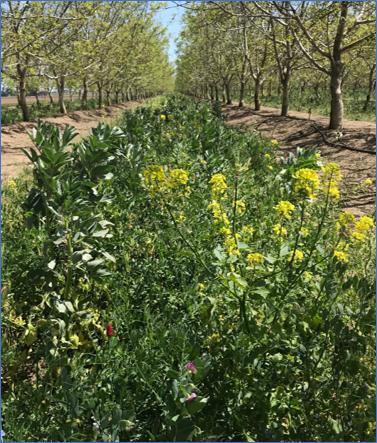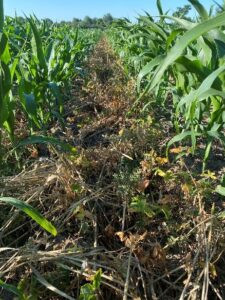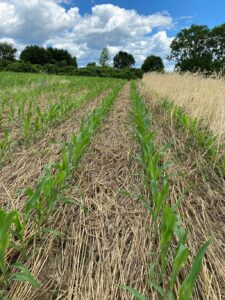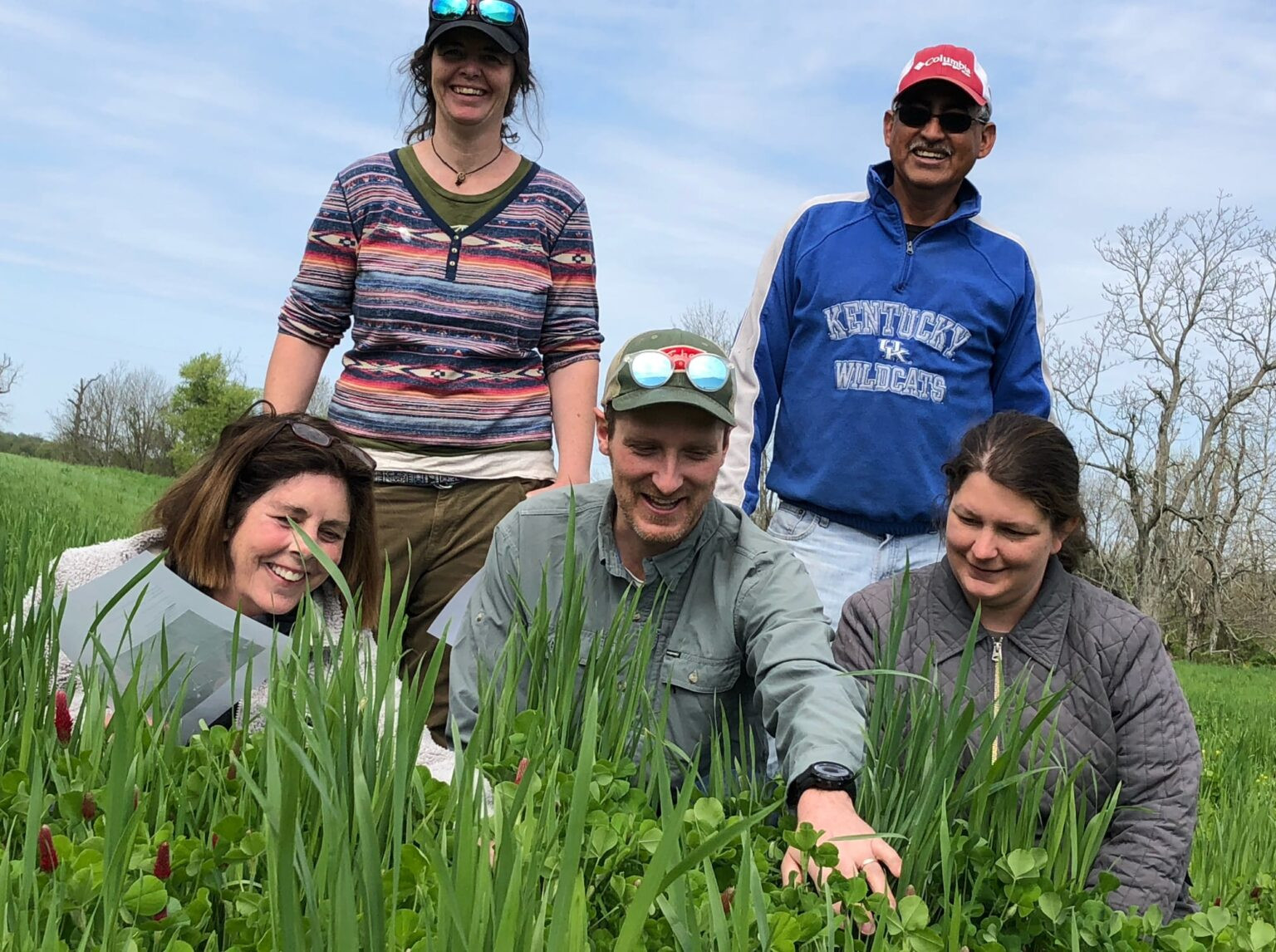Conquering Cover Crop Challenges
Soil Health Demonstration Trials: Conquering Cover Crop Challenges Coast to Coast
Project Purpose
To showcase solutions to regional and cropping system barriers to cover crop adoption through farmer-driven transitions.
Project Description
Conquering Cover Crop Challenges from Coast to Coast project, funded through a CIG On-Farm Trials grant of $2.6 million, will test innovative solutions that will help overcome regional and crop-specific barriers to cover crop adoption on fifteen farms in five states and three geographic regions. The project includes 5 years of evaluation of comprehensive soil, economic, and social factors and outcomes. Specifically, the demonstration project is:
Addressing cover crop establishment challenges unique to high value, high-input specialty crops, and high disturbance vegetable row cropping in water-limited valleys in California by demonstrating the benefits of cover crop and compost adoption;
Diversifying the traditional corn-soybean rotation and enhancing soil health in Kentucky by converting from a typical corn-bean system to a diversified rotation of corn-rye-soybeans-cover crop; the rye will be no-till planted into corn residue, with most farms already using conservation tillage;
Addressing cover crop timing and termination challenges in cool, humid regions in (1) New York by demonstrating the benefits of a technique called “planting green” and (2) in Connecticut and Massachusetts, demonstrating how shorter maturity silage corn varieties can improve cover crop establishment in systems currently using or interested in adopting no-till practices;
Optimizing nitrogen inputs to cover crop integration through adaptive management as part of the overall Soil Health Management System in New York.
AFT is also partnering with 13 local conservation districts, university extension departments, and the private sector across five states. The project team is:
Collecting over 500 soil samples and conducting annual in-field assessments that will provide valuable, short-term data for NRCS’ emerging national soil health database;
Further developing AFT’s soil health economic calculator created under a 2018 CIG grant — Quantifying Economic and Environmental Benefits of Soil Health – to better analyze each farmer’s existing soil health management systems and to predict long-term results;
Conducting social indicator surveys that will pinpoint the project strategies that were most effective at supporting farmers in adopting a soil health management system;
Providing financial support to farms to compensate for the risks involved in changing to cover crops;
Providing technical support to farms that guide them as they encounter obstacles and adapt management strategies; and
Sharing key findings with farmers and agricultural professionals to encourage the adoption of conservation practices by neighboring farmers.










